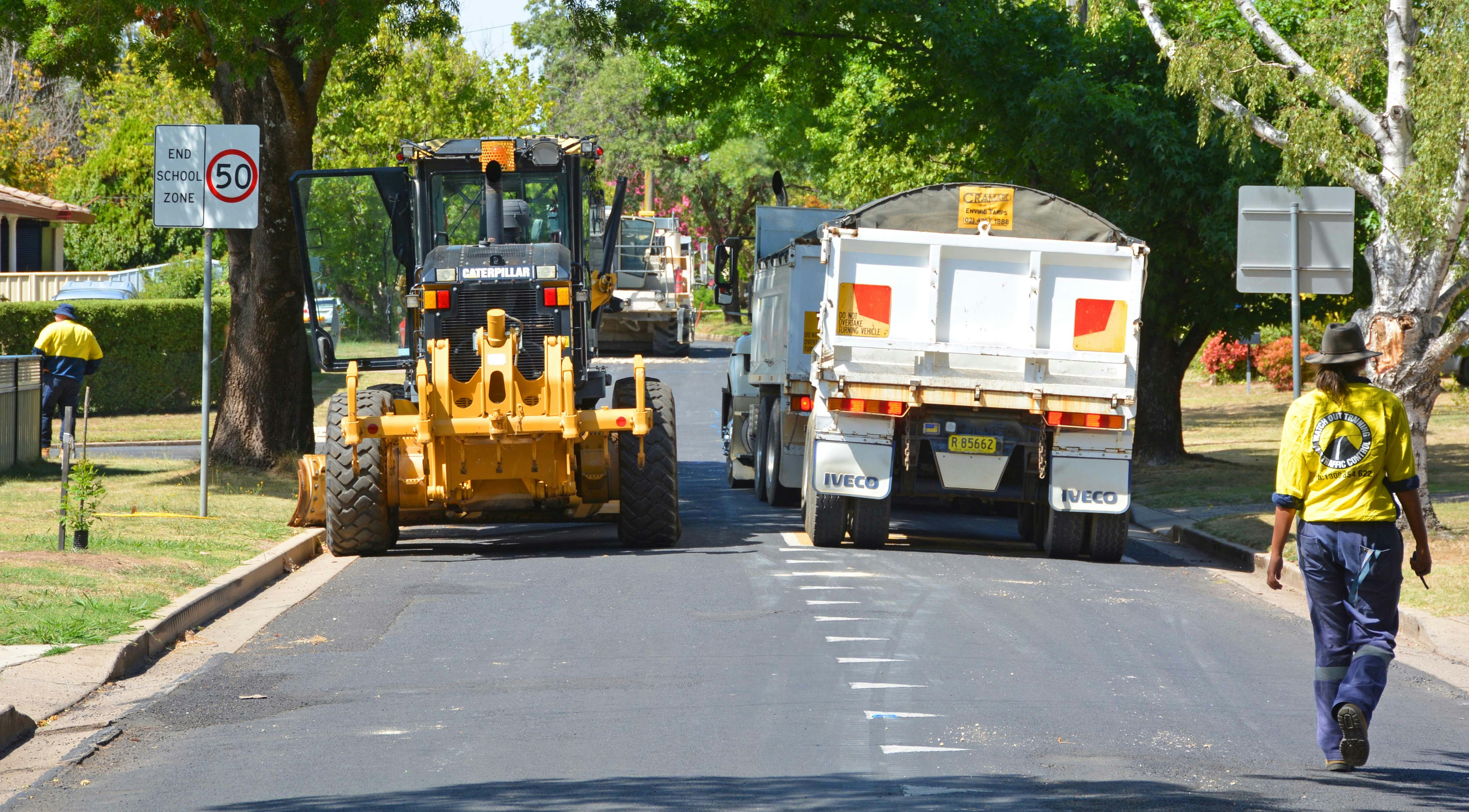How long do roads last?

When to maintain, and when to renew a road?
- do maintenance work on a road, by patching potholes, or
- renewing a road, by digging up the damaged road surface and adding a new surface.
For effective management, engineers divide sections of Orange's road network into 'segments'. A road segment is a section of road that runs from one intersection to another.
Every segment in Orange's 358 kms of sealed roads is inspected and assessed every 2 years. Orange City Council also welcomes information from residents who have noticed pot holes or damaged roads.
Inspections look at :
- the amount of patching that happened already,
- the amount of cracking, roughness and
- the shape of the road.
The segments are rated on a scale of worst to best, using a 1(worst) to 5 (best) scale.
A pavement and surface is generally renewed when the condition level reaches approximately 3.5.
Orange City Council's aim is to maintain our roads with 'repairs' throughout their life until their condition falls below condition 3 when they are scheduled for 'renewal'.
How long do roads in Orange last?
Records of inspections and repairs collected since 1992, give Orange City Council staff the facts on how long local roads are lasting.
It is currently estimated that the average life span of a road pavement (the road's underlying foundations) is approximately 39 years.
It then depends what sort of surface or seal is added to the top surface of the road.
There are two kinds of surface:
- Sprayed seal (Bitumen)
Sprayed seal (Bitumen) surfacing is a relatively quick process enabling large areas of pavement to be renewed in a short period of time. This is the most common surface applied to most suburban streets in Orange.
- Hot-mix asphalt
Hot-mix asphalt overlays use up a considerable amount of more material and require more equipment and time to lay than sprayed seals, but offer a superior level of service with a much smoother ride.
Spray seal bitumen
The average life span of a sprayed (bitumen) seal surface is 13 years
This means, on average, once a road pavement is built, it should last long enough for and two subsequent re-seals with a sprayed surface before it is ready for renewal:
Over the life of the road :
- the first bitumen gravel seal should last between 0 to 13 Years
- the first re-seal should last between 13-26 years
- the last re-seal should between 26-39 years
Hotmix Asphalt
The average life span of an asphalt hot-mix surface is 26 years.
If a pavement is initially overlaid with asphalt, it will only have to be re-sealed once before the pavement has to be re-built.
Over the life of the road :
the new hot mix seal should last between 0-26 years
the next re-seal should last between 26 - 39 years
Which surface for which road :
Hot-mix asphalt or Sprayed bitumen?
Orange City Council has a limited budget to spend on roads.
It makes sense to spend the most money on the roads which have the most traffic.
Hot-mix Asphalt costs five times as much initially, but is only around two and a half times as expensive as a bitumen reseal, when its much longer life is factored in.
Insert table image here....
Surface Cost Life Cost / Year
Bitumen Gravel Reseal 4.50/sq metre 2-13 years $0.35 / sq metre / year
40mm layer of hot-mix Asphalt $24/sq metre 2-26 years $0.92/sq. metre / year
Hot-mix provides a much higher level of service due to the superior ride quality, reduced traffic noise and less ongoing maintenance.
Hot-mix surfaces have generally been used on high traffic roads in Orange, in particular around the main shopping area as well key arterial roads leading out from the centre of Orange.

Consultation has concluded



